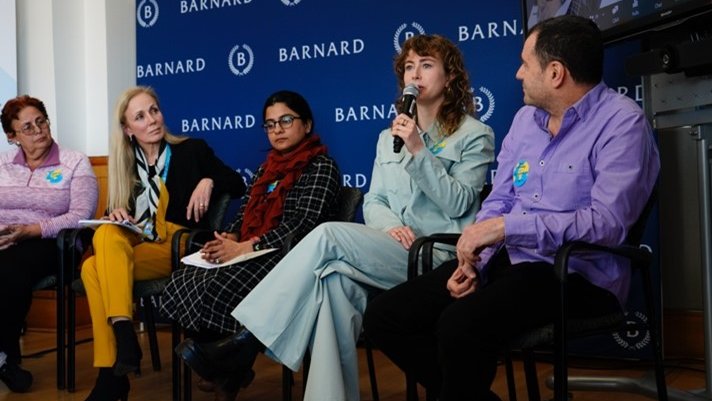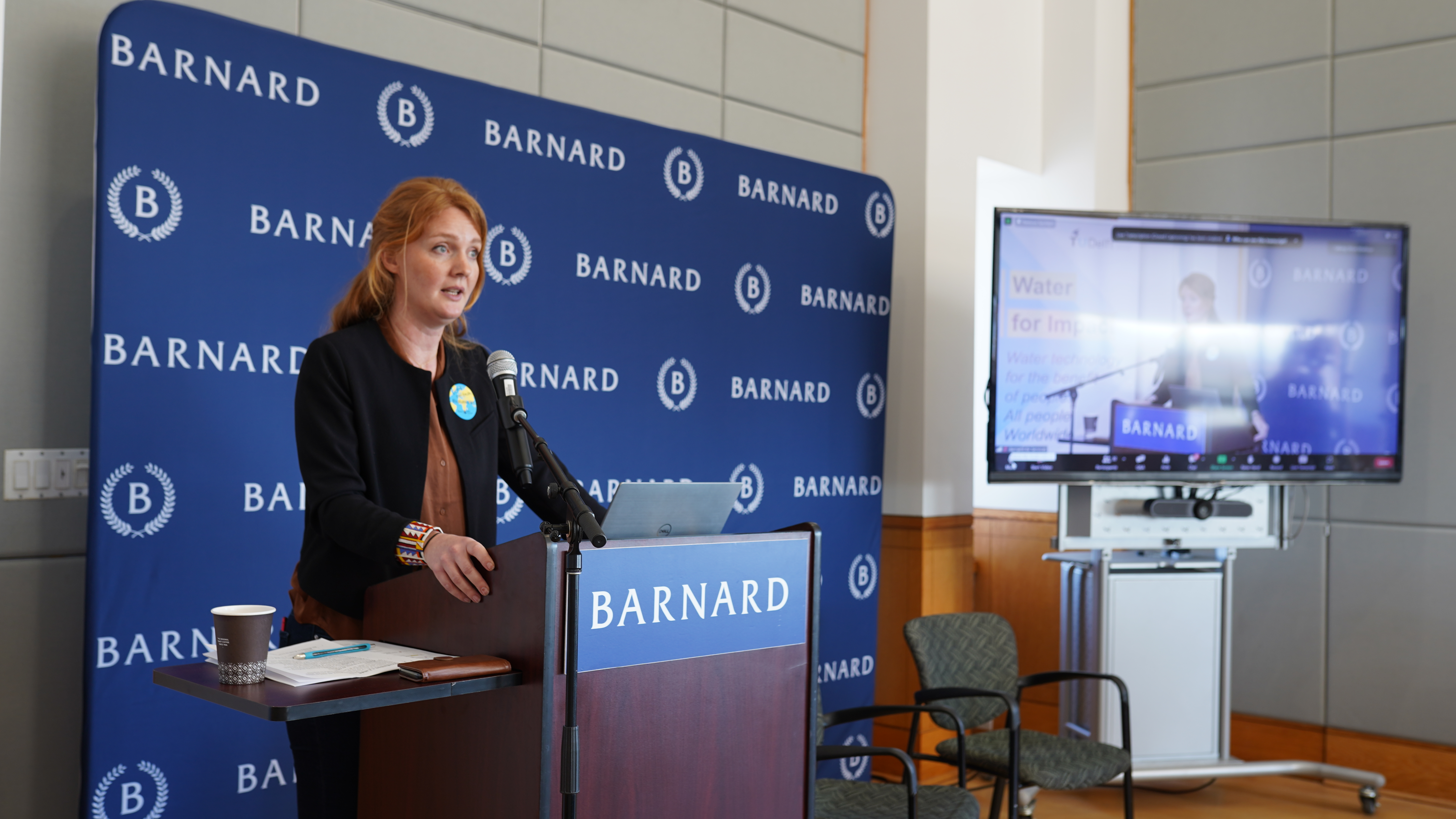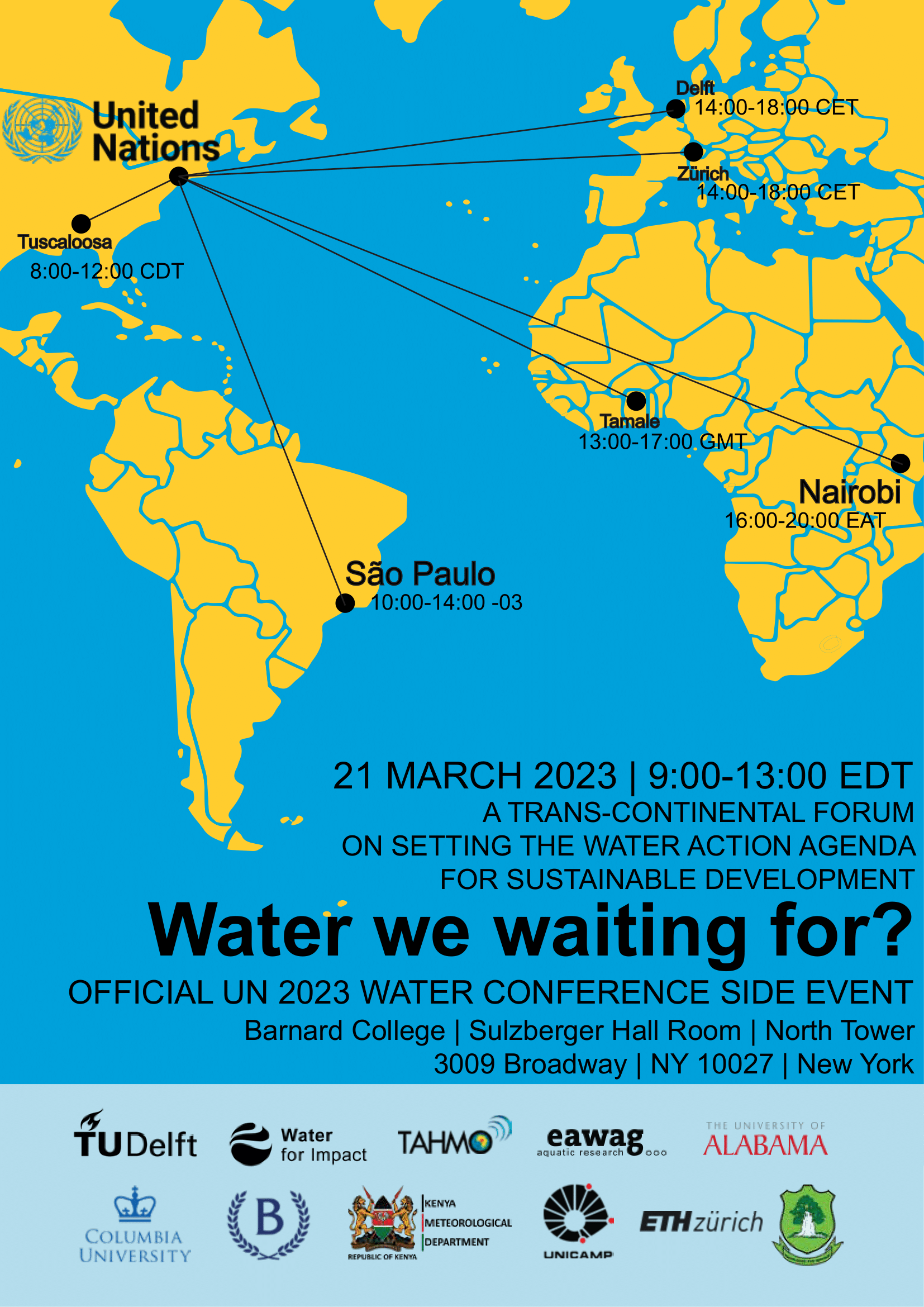TU Delft | Water for Impact at the UN Water Conference in New York
During the plenary opening of the UN2023 Water Conference on March 22nd in New York City, all representatives were asking for more awareness, discussions, and most importantly, #WaterAction. Researchers from the TU Delft | Water for Impact programmes were present in New York to do just that: share knowledge, activate participants and bring together international water experts to accelerate the search for global solutions.
Water we waiting for?
Global challenges on water cannot be solved without working together and sharing experiences from people from around the world. People need to come together, to co-create solutions that drive the transition towards a world where today’s water issues are gone. It was with this mindset that for New York Water Week (a series of side events from 18-24 March to build momentum surrounding the United Nations 2023 Water Conference), TU Delft | Water for Impact and Barnard College connected three continents — Africa, Europe, South America — in an interactive dialogue addressing issues of water impact, management, and sustainability. The participating water hubs— members of academic and research centres speaking from Nairobi, Kenya, and São Paulo, Brazil — discussed water security challenges, private sector directives, and clean-energy technology solutions distinct to their regions(see Box below ).
Participants watching from all over the world had the opportunity to ask questions during the side event in a virtual chatroom or through the student hubs at TU Delft and Eawag/ETH Zürich. The online forum was followed by an in-person panel of economists, policymakers, and water experts who charged the audience with one goal: actionable output. The Nairobi consortium has a clear action target: “We are committed to install weather stations across 10 Sub-Saharan countries by 2030” said Frank Annor, CEO of TAHMO. Columbia University professor Daniel Osgood is impressed by this proposal and argued “We have the tendency to think that we can rely on the robots that we send into the sky [satellites], but without solid ground data in Africa these are useless for estimating rainfall”.


Get-Up, Stand-Up
TU Delft and partners further raised the bar on transformative teaming during their side event at the United Nations Headquarters: “Water Innovations for Sustainable Development: a Get-Up, Stand-Up Session”. In an exciting, novel format, delegates were challenged to take position in a human spectrogram. “This playful format encouraged people to speak up and it was moving to see how participants were drawn into the discussion” says Doris van Halem, Professor Drinking Water Quality & Treatment at TU Delft. “We are not on track to reach the Sustainable Development Goals on water by 2030, so for the Water Action Agenda it is key to prioritize areas of impactful research, innovation and investment. We should do this together.”
The session was moderated by Dr. ir. Edo Abraham (TU Delft) and Lisa Neuberger Fernandez (374Water), who carefully prepared statements to trigger debate. Statements covered emerging contaminants, like PFAS, the role of the scientific community, appropriate technologies and even whether water should be made a political priority. Beyond discussing technical interventions, Edo says that “ it was refreshing to prompt engagement with challenging notions on ‘whether the global WASH crises should be considered as a Humanitarian crisis requiring a similarly rapid action’, or ‘whether the responsibility lies with the global community to lift the most marginalized groups such as smallholder farmers out of poverty’, or ‘what role should traditional knowledge and practices play in modern climate services’. It was great to see leading experts disagree agreeably, and then come to a natural action-oriented consensus on many a topic.”
Love and Water
The whole NY Water Week had been amazingly energizing, with many positive pledges for partnerships and action. However, the urgent global water needs also mean that we should remain impatient of inaction. “The fact that you have come together, here, as research communities to look at practical solutions to make differences in people’s lives is incredibly meaningful,” said Kitty van der Heijden, Direct-General of International Cooperation (Dutch Ministry of Foreign Affairs) during TU Delft’s official side event at UN2023 Water Conference. “We can live without love, but we cannot live without water”.
The Water Hubs
Nairobi
- Issue: Reliable rainfall predictions are urgently needed for Flood Early Warning Systems and to develop climate services for farmers, insurance agents, and others.
- Posited solution: Establish a sufficiently dense network of meteorological stations and ground and remote-sensed data to build reliable weather models for sub-Saharan Africa.
- SDG and Water Action Agenda target: To provide 10 sub-Saharan African countries with accurate and timely rainfall services.
São Paulo
- Issue: The lagging implementation of viable technologies and design policies for reuse of water for domestic, industrial, and agricultural purposes.
- Posited solution: Develop value chains within sanitation and wastewater treatment; more active and local stakeholder involvement.
- SDG and Water Action Agenda target: To publish an open-access white paper of the best practices from all continents on inclusive and contextualized circular wastewater treatment and resource recovery.






